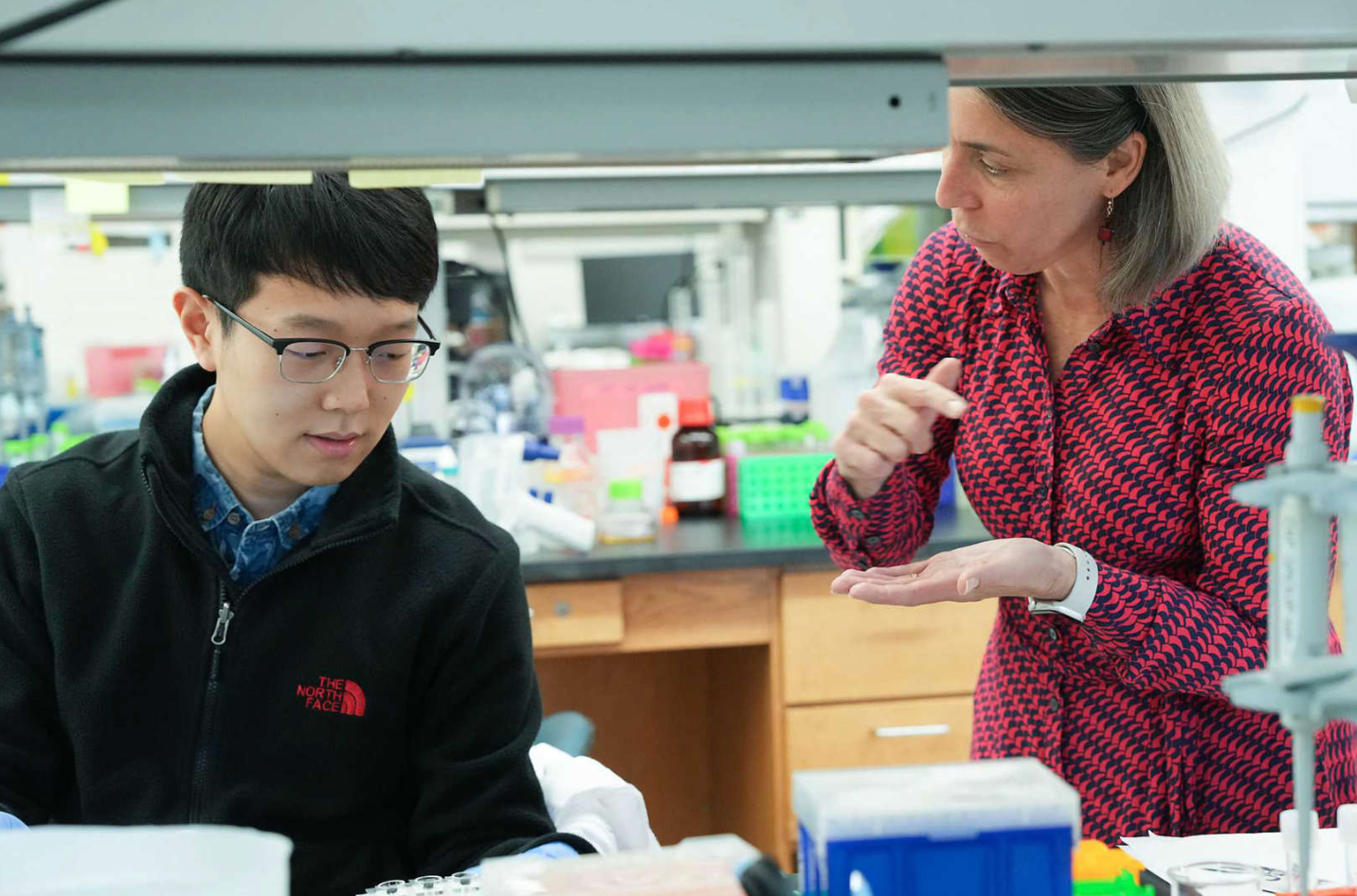Story by Samantha Ketterer •
Rice University has opened five new research institutes and increased funding of existing ones in recent months as part of a broader effort to boost the private university's graduate program under President Reginald DesRoches’ administration.
The Rice Synthetic Biology Institute and WaTER Institute are among the new institutes that create interdisciplinary hubs based off ongoing research, aiming to draw more students, faculty and grant dollars to the fields.
“The intention was to have our graduate program be on par with our undergraduate .. easier said than done, so we needed a plan,” said Ramamoorthy Ramesh, Rice’s executive vice president for research. “First, of course, we need to be doing the scholarly research at the highest level.”
DesRoches became president in summer 2022 and quickly identified the graduate program as a place to balance the scales after decades of Rice being more recognized for its undergraduate student experience. The gap between enrollments is closing and falling more in line with its peers in the prestigious Association of American Universities group. Rice’s overall degree-seeking population hit 54% undergraduates and 46% graduates in fall 2023, according to the president’s most-recent state of the university address.
The two new institutes follow three more that were announced in July: the Rice Sustainability Institute, Rice Advanced Materials Institute and Medical Humanities Research Institute. Others that received funding boosts were the Smalley-Curl Institute, which houses the applied physics graduate program; the Rice360 Institute for Global Health Technologies; and the Ken Kennedy Institute for AI, data and computing.
Rice officials declined to release details of its most recent monetary infusions, adding that they aren't fully representative of the total funding the institutes receive through grant funding.
“Rice has strategically increased its investment in research that will positively impact the community, region, nation and world,” DesRoches said in a statement Thursday about the WaTER Institute. “As university president and a civil engineer, I am confident that Rice scientists will make discoveries that transform lives and communities through innovation.”
The research
The new WaTER Institute, short for the Institute for Clean Water Technologies, Entrepreneurship and Research, is meant to lead research in public health, energy transitions and resilient infrastructure, according to the university. Faculty and graduate students in the group plan to improve worldwide access to safe drinking water, disease prevention through wastewater monitoring and energy use in water movement and treatment, among other things.
Some of the research includes developing technologies to remove contaminants and meet increasingly stringent environmental standards, said Pedro J. Alvarez, the institute’s director and the George R. Brown Professor of Civil and Environmental Engineering. About 43 million Americans lack access to municipal water, and 1 in 10 people globally do not have access to safe drinking water, he said.
“I always say that clean water can save more lives than doctors,” Alvarez said. “The general idea is to create clean water on demand, and do it in a manner that is affordable and reliable and accessible to many people.”
The institute will pull on partnerships with other university and local organizations, promoting entrepreneurship for water technologies in collaboration with the Rice Alliance for Technology and Entrepreneurship, the Liu Idea Lab for Innovation and Entrepreneurship and The Ion. And Rice researchers are working with the Houston Health Department and Houston Public Works, helping them predict and prevent pandemics by detecting diseases in sewage.
The WaTER Institute also comes after the announcement of the Rice Synthetic Biology Institute, which launched in mid-January to explore an interdisciplinary discipline where researchers manipulate and redesign living organisms to address societal needs. More than 18 faculty and 100 students and postdoctoral scholars in the Schools of Engineering and Natural Sciences do work connected to synthetic biology, and the university will now give the institute $1 million per year in seed funding for five years, said Caroline Ajo-Franklin, who leads the group.
The synthetic biology institute will focus on finding applications in medicine, manufacturing and environmental sustainability, and exploring the ethical, legal and social implications of translating new technologies for public use, according to the university.
Initial research will concentrate on controlling the patterning of cells and proteins into living materials that self-replicate and self-repair, and repurposing cells into living therapeutics for disease detection and treatment as well as infection prevention. Other work in the Rice Synthetic Biology Institute will develop living electronics for the conversion of biochemical information into electronic signals.
“The fundamental science that the institute is about is, how do we manipulate DNA to create useful biotechnologies, and ones that will benefit society?” said Ajo-Franklin, professor of biosciences, engineering, and chemical and biomolecular engineering. “How do we create therapeutics that are essentially manufactured on demand in the body? How are we creating materials that are more sustainable?”
Having a new designation as an institute will ideally make collaborations easier between departments in a notoriously interdisciplinary field, said August Staubus, a Ph.D. candidate in Rice's biobiochemistry and cell biology program. He otherwise said he is looking forward to hearing more clearly articulated goals as the institute gets off the ground.
"It’s hard to anticipate how these will impact our lives, the quality of life as a graduate student," Staubus said. "It certainly can only help. It’s a nice token of expression that there’s an interest in investing in the quality of research for graduate students."

